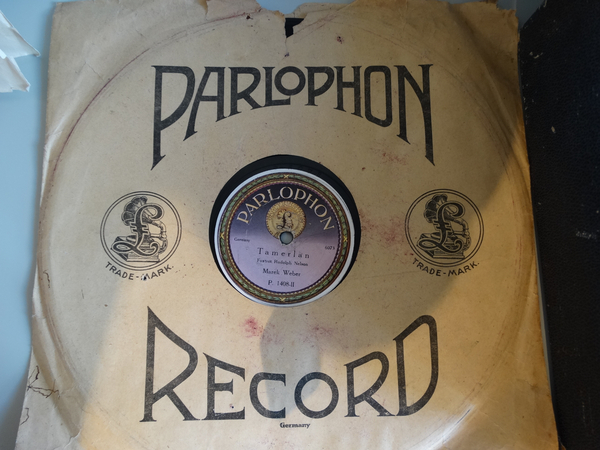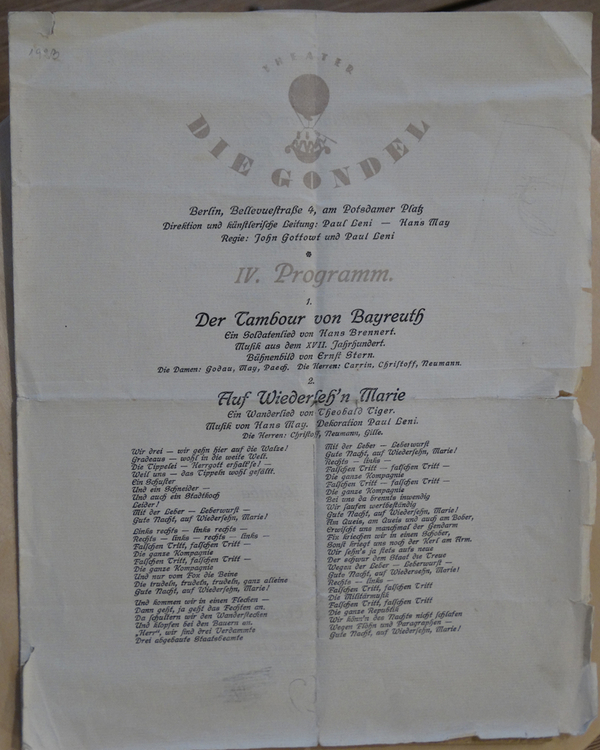Audio guide for reading
Audio guide for reading „ ‚That’ people say often, when they read one of my verses, ‚is probably pretty easy for you. It sounds as if….’ – ‘I make it up as I go, eh?’ I say then.
‘Yes’, say the people.
The effort it takes to wrench a chanson from the German language - especially one for recitation – is inversely proportional to the effect of these things. … I never believed that it takes so much work to get people to laugh for two hours in the evening without them or the authors having to feel ashamed afterwards.”
Kurt Tucholsky was one of the most successful chanson-writer of his time – and remains so untill today. He knew exactly that a text for the stage is something absolutely different from a text for reading:
“A couplet – is more or less a coarsely knocked together affair, an omnium-gatherum of foul jokes, a crude poem – that ends with the inevitable refrain, that has to be as suggestive and as absurd as possible for people to get it. The German couplet, which has no literary value – rests on two big keystones: tedium and dirty jokes. Though options are available to turn it into something acceptable and brilliant. Of course a trifle more belongs to it: attitude, taste and great ability.”
![[Translate to Englisch:] Kurt Tucholsky Literaturmuseum [Translate to Englisch:] Kurt Tucholsky Literaturmuseum](/fileadmin/_processed_/4/c/csm_logo-ktm_adccaface9.png)








